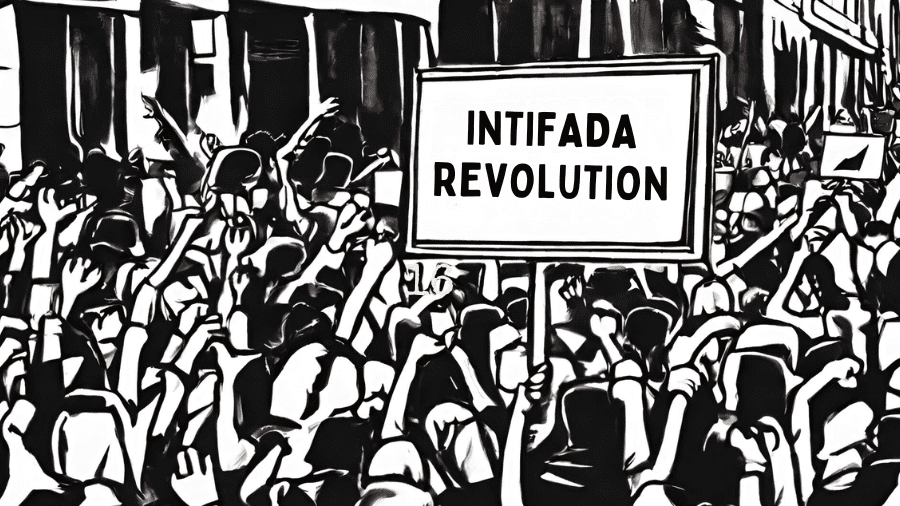This article originally appeared in the Toronto Sun.
By Casey Babb, May 6, 2024
For the better part of twenty years, I’ve been active on university campuses in this country.
As a young undergraduate student at Saint Mary’s University in Halifax, I was molded by mentors in the Political Science Department who gave my peers and I the freedom to debate everything from sex in politics, to our foreign policy, to the wars and carnage in Afghanistan and Iraq.
Years later, at York University in Toronto – where I completed a Master’s degree – I vividly recall fiery classroom debates about the proliferation of nuclear weapons, the 2012 attacks on U.S. facilities in Benghazi, and the state of America under an Obama Administration.
Now, more than a decade later, I don’t just participate in these discussions – I lead them.
Teaching courses on terrorism and global conflict at Carleton, I’ve repeatedly pushed students to challenge assumptions, to ask themselves and others hard questions, and to embrace the academic freedom we so often take for granted. Indeed, this freedom to pursue knowledge – wherever it may take us – is in my view the most critical element of higher education.
That said, since the barbaric terrorist attacks in Israel on Oct. 7, much of what I have seen and heard at university campuses throughout the United States, Canada, and beyond, has shaken me to my core. Freedom of expression, the ability to protest, and legitimate social justice movements are one thing. Celebrating the mass rape, murder, mutilation and kidnapping of Jews in the name of “resistance,” calling for the erasure of Israel, and intentionally intimidating, harassing, and assaulting Jewish students is something entirely different.
It has long been known that universities are a breeding ground for anti-Semitism. Members of my own family have experienced it firsthand. As I recently told an audience at the Illinois Holocaust Museum and Education Center, in the 1960’s when my father attended St. Francis Xavier University in Nova Scotia, students would make the hissing sound of gas when he entered the room – only twenty years after the end of the Holocaust.
During my own undergraduate studies, I was routinely harassed for being Jewish – one classmate throwing change on the ground telling me to “dance.”
However, this type of anti-Semitism, the ugly type based primarily on longstanding stereotypes and our history of trauma and victimhood, has been eclipsed in recent years by a far more pervasive form of antisemitism – anti-zionism.
While anti-Israel activities have thrived on university campuses since the days of Yasser Arafat and the Palestine Liberation Organization, the sort of supercharged anti-zionism we have seen proliferate since Oct. 7 is eerily different – reminiscent of 1930’s Germany.
To understand the venomous toxicity overtaking our universities, one ought to read the statement from the pro-Hamas Students for Justice in Palestine that was released almost immediately after the Oct. 7 attacks. In it, they refer to what was the deadliest day for Jews since the Holocaust as a “a historic win for the Palestinian resistance,” writing that they had “(caught) the enemy completely by surprise.”
Many of the people caught by surprise were children, young women who were violently and horrifically sexually assaulted, and, of course, Holocaust survivors.
In addition, there have been numerous instances of Hamas slogans being disseminated and even projected onto the sides of campus buildings, the vandalism of university property with anti-Semitic graffiti, the harassment and assault of Jewish students and, more recently, the erection of large scale anti-Israel encampments across universities throughout America and Canada – including at McGill and Concordia.
Over the near-term, all of this has me concerned for the safety and wellbeing of my students. Not just the Jewish ones, but those who want to experience the true richness of university life. However, over the long-term, the abhorrent behaviour of these young men and women – who likely have no real understanding of the Middle East or interest in improving the lives of Palestinians – has me fearing for the worst.
Such overt racism, bullying and discrimination, veiled as something positive or righteous, could move from destabilizing trollery to the acceleration and intensification of widespread anti-Semitism and the suppression of Jewish life, not just on our campuses but throughout our societies.
To echo American writer Tom Nichols: “Anti-Semitism is not a cause that can be dismissed as a youthful indiscretion. It is not some innocent blemish that can be backspaced out of a resume. Chanting ‘From the river to the sea’ after a terrorist onslaught isn’t something that can be rinsed away later merely by adding, ‘But I meant it in the good way.’”
If we don’t act soon, if we don’t snuff this madness out in the academic institutions that have, in large part, made us who we are, our ability to generate knowledge, our safety, and our future could face disastrous consequences.
Dr. Casey Babb is a Senior Fellow with the Macdonald Laurier Institute in Ottawa, a Fellow with the Institute for National Security Studies in Tel Aviv, and an Associate Fellow with the Royal United Services Institute in London, England. He teaches courses on terrorism and international security at the Norman Paterson School of International Affairs in Ottawa.






